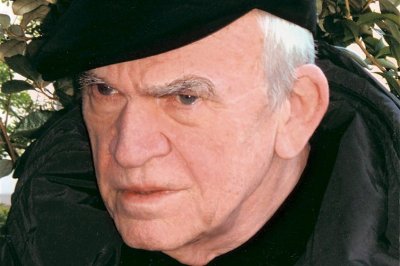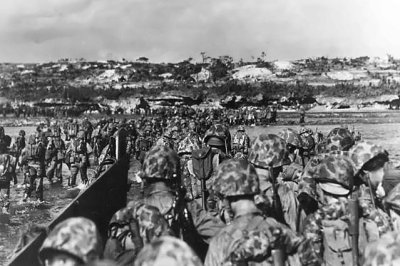Topic: Milan Kundera
Quotes
The only reason people want to be masters of the future is to change the past
The almanac Nov 19, 2008
The only reason people want to be masters of the future is to change the past
The almanac Nov 19, 2007
The only reason people want to be masters of the future is to change the past
The Almanac Nov 19, 2006
The only reason people want to be masters of the future is to change the past
The Almanac Nov 19, 2005
The only reason people want to be masters of the future is to change the past
The Almanac Nov 19, 2004
Milan Kundera (Czech pronunciation: , born 1 April 1929, is a writer of Czech origin who has lived in exile in France since 1975, where he became a naturalized citizen in 1981. He is best known as the author of The Unbearable Lightness of Being, The Book of Laughter and Forgetting, and The Joke. Kundera has written in both Czech and French. He revises the French translations of all his books; these therefore are not considered translations but original works. His books were banned by the Communist regimes of Czechoslovakia until the downfall of the regime in the Velvet Revolution in 1989.
Kundera was born in 1929 at Purkyňova ulice, 6 (6 Purkyňova Street) in Brno, Czechoslovakia, to a middle-class family. His father, Ludvík Kundera (1891–1971), once a pupil of the composer Leoš Janáček, was an important Czech musicologist and pianist who served as the head of the Janáček Music Academy in Brno from 1948 to 1961. Milan learned to play the piano from his father, later going on to study musicology and musical composition. Musicological influences and references can be found throughout his work; he has even gone so far as including notes in the text to make a point. Kundera is a cousin of Czech writer and translator Ludvík Kundera. Milan Kundera belonged to the generation of young Czechs who had had little or no experience of the pre-war democratic Czechoslovak Republic. Their ideology was greatly influenced by the experiences of World War II and the German occupation. Still in his teens, he joined the Communist Party of Czechoslovakia which seized power in 1948. He completed his secondary school studies in Brno at Gymnázium třída Kapitána Jaroše in 1948. He studied literature and aesthetics at the Faculty of Arts at Charles University in Prague. After two terms, he transferred to the Film Faculty of the Academy of Performing Arts in Prague, where he first attended lectures in film direction and script writing. In 1950, his studies were briefly interrupted by political interference.
In 1950, he and writer, Jan Trefulka, were expelled from the party for "anti-party activities." Trefulka described the incident in his novella Pršelo jim štěstí (Happiness Rained On Them, 1962). Kundera also used the incident as an inspiration for the main theme of his novel Žert (The Joke, 1967). After graduating in 1952, the Film Faculty appointed him a lecturer in world literature. In 1956 Milan Kundera was readmitted into the Party. He was expelled for the second time in 1970. Kundera, along with other reform communist writers such as Pavel Kohout, were partly involved in the 1968 Prague Spring. This brief period of reformist activities was crushed by the Soviet invasion of Czechoslovakia in August 1968. Kundera remained committed to reforming Czech communism, and argued vehemently in print with fellow Czech writer Václav Havel, saying, essentially, that everyone should remain calm and that "nobody is being locked up for his opinions yet," and "the significance of the Prague Autumn may ultimately be greater than that of the Prague Spring." Finally, however, Kundera relinquished his reformist dreams and moved to France in 1975. He taught for a few years in the University of Rennes. He was stripped of Czechoslovak citizenship in 1979; he has been a French citizen since 1981.
It uses material from the Wikipedia article "Milan Kundera."







